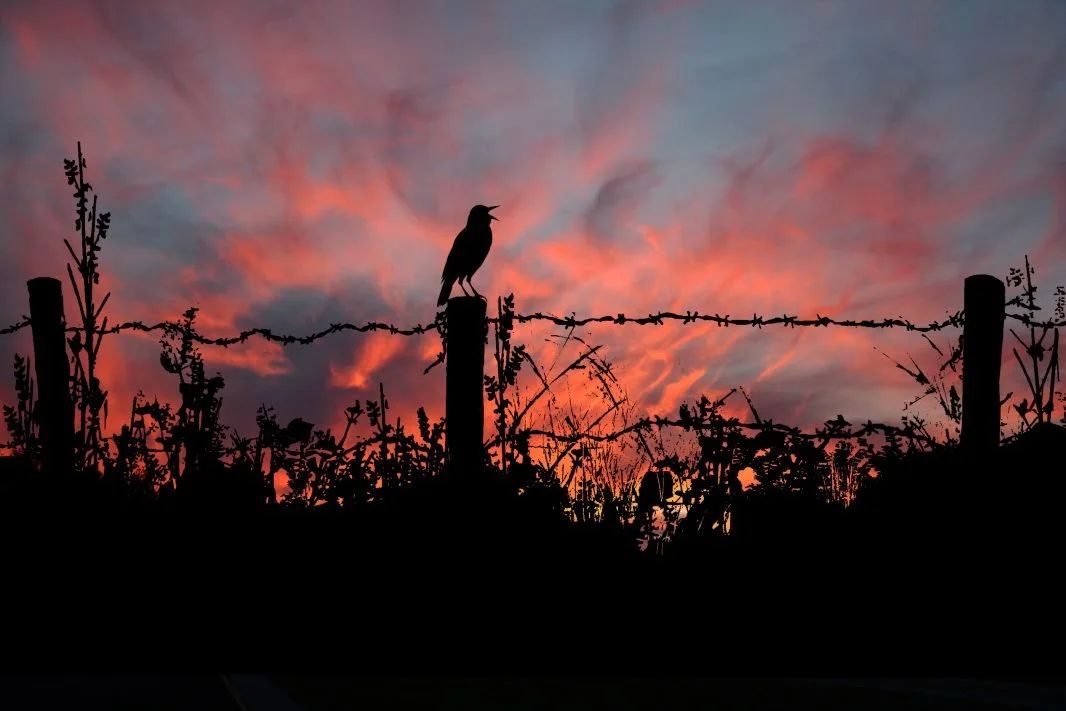An evocative, poetic French word adopted into English language in the 17th century meaning a song or poem set, or performed, at dawn or evoking daybreak, most often about lovers separating – and the flipside of a serenade. Traditionally it’s sung or from the perspective of a departing lover to a sleeping woman, but there are many variants. Sometimes the term is conflated with albas, a conversational song form between two lovers, with most prominent early forms in the Catalonian language of Occitan.
Aubade traditions stretch back to the Middle Ages sung by roaming troubadours, but perhaps the most famous poem of this type in English is John Donne’s metaphysical The Sunne Rising, in which the poet chides the rising orb from separating him from his lover, personifying its arrival with a spread of human emotions:
Busy old fool, unruly Sun,
Why dost thou thus,
Through windows, and through curtains, call on us?
Must to thy motions lovers' seasons run?
Saucy pedantic wretch, go chide
Late school-boys and sour prentices,
Go tell court-huntsmen that the king will ride,
Call country ants to harvest offices;
Love, all alike, no season knows nor clime,
Nor hours, days, months, which are the rags of time.
Thy beams so reverend, and strong
Why shouldst thou think?
I could eclipse and cloud them with a wink,
But that I would not lose her sight so long.
If her eyes have not blinded thine,
Look, and to-morrow late tell me,
Whether both th' Indias of spice and mine
Be where thou left'st them, or lie here with me.
Ask for those kings whom thou saw'st yesterday,
And thou shalt hear, "All here in one bed lay."
She's all states, and all princes I;
Nothing else is;
Princes do but play us; compared to this,
All honour's mimic, all wealth alchemy.
Thou, Sun, art half as happy as we,
In that the world's contracted thus;
Thine age asks ease, and since thy duties be
To warm the world, that's done in warming us.
Shine here to us, and thou art everywhere;
This bed thy center is, these walls thy sphere.
A different, and certainly darker interpretation comes in the 20th-century late work by Philip Larkin, Aubade, where he philosophises on how the arrival of dawn may symbolise his departure, not from a lover, but from his own life. Here it’s read in his own inimitable voice, evoking a quiet terror of death in a characteristically very English, understated, and beautifully written:
There have also been many aubade classical pieces, particularly by French composers some of which have linked with Spain. In 1883, the French composer Emmanuel Chabrier composed an Aubade for piano solo, inspired by a four-month visit to Spain. Maurice Ravel included a Spanish-inspired aubade, Alborada del gracioso, in his 1906 piano suite Miroirs.
An aubade is also the centerpiece of Erik Satie’s 1915 piano suite Avant-dernières pensées. And composer Francis Poulenc later wrote a piece titled Aubade in concerto form that premiered in 1929. Here’s Satie’s piece:
And here’s the gorgeous song Aubade, Op. 6 No. 1, by Gabriel Fauré peformed by Cyrille Dubois and Tristan Raës:
Rather differently, aubade meaning was inverted into a cinematic, moonlit context, Aubade To The Moon, in this charming, early special effects and balletic 1902 Franco-Russian film, from Pathé Frèyes, part of a trilogy, Visions d’Art:
There are many other aubade-themed songs since. Here’s an indie pop example from Los Angeles singer-songwirter Hana Vu, capturing the transition from light to dark and “love’s end”:
Feel free to share anything in relation to the aubade form or theme, in music or wider culture, such as from film, art, or other contexts, in comments below.
You can also get in touch the contact page, and also visit us on social media: Song Bar Twitter, Song Bar Facebook. Song Bar YouTube. and Song Bar Instagram. Please subscribe, follow and share. New to comment? It is quick and easy. You just need to login to Disqus once. All is explained in About/FAQs ...
Song Bar is non-profit and is simply about sharing great music. We don’t do clickbait or advertisements. Please make any donation to help keep the Bar running:

